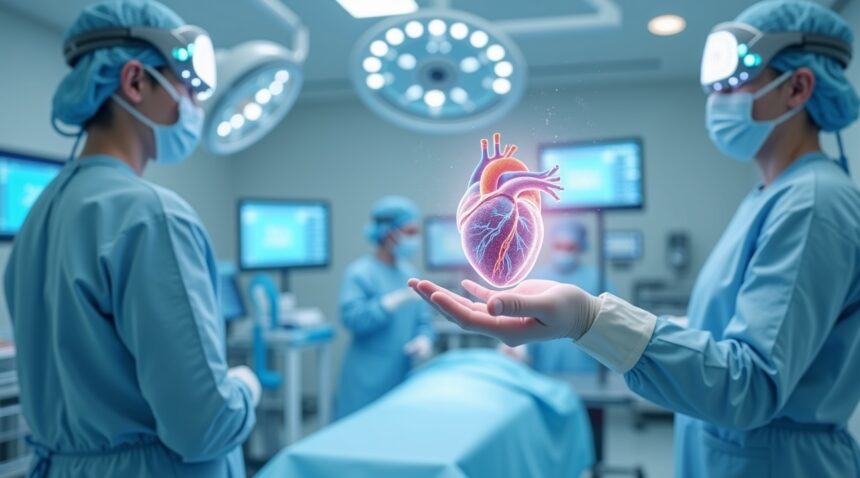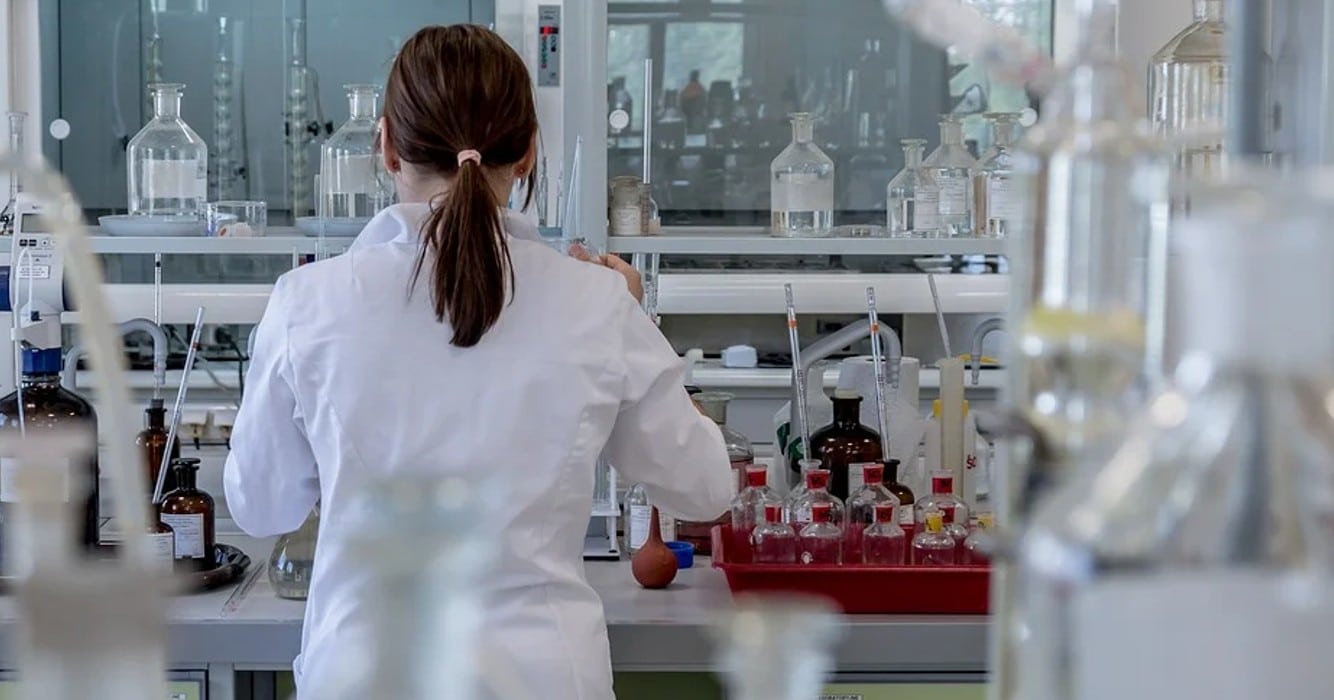CARMAT’s Aeson artificial heart delivers an impressive 90% survival rate in clinical trials, marking a revolutionary advancement that could solve the critical shortage of donor hearts affecting thousands of patients worldwide.
Overview of the Aeson Artificial Heart
The Aeson artificial heart is a self-regulating, biocompatible device developed by the French med-tech company, CARMAT. Designed to permanently replace failing human hearts, Aeson offers new hope to patients suffering from end-stage heart failure, especially where donor organ availability is low.
Technological Innovation
Aeson stands out among artificial cardiac systems due to its innovative use of smart sensors and advanced materials. These technologies allow the heart to adapt automatically to the body’s physiological needs, mimicking natural cardiac rhythms without external input.
Key Takeaways
- The Aeson artificial heart achieved a 90% six-month survival rate in the EFICAS trial with 52 patients across France, setting a new benchmark for artificial heart devices.
- More than 100 implants have been performed globally, with 50 completed in just over one year—compared to nearly a decade for the first 50, highlighting accelerated adoption and procedural learning.
- Smart sensors built into the device regulate cardiac output based on the patient’s activity levels and physical demands. This eliminates the need for manual adjustment and helps maintain normal heart rhythms.
- CARMAT is currently facing a critical funding shortfall, requiring €3.5 million by June 2025, and an additional €35 million over the following 12 months to ensure continued operation and development.
- The company aims to submit for reimbursement within the French national health system by early 2026 and is actively pursuing FDA discussions to resume U.S. trials. A long-term enhanced version of Aeson is expected by late 2025.
Looking Forward
As Aeson moves closer to widespread availability, CARMAT is positioning itself strategically through regulatory engagements and enhanced product development. You can follow the company’s progress and updates on the official CARMAT website.
Revolutionary Artificial Heart Eliminates Need for Donor Organs
CARMAT has unveiled the Aeson artificial heart in 2025, marking a transformative moment in cardiac medicine. This groundbreaking medical device permanently replaces the function of a failing human heart, completely eliminating the need for donor organs. The innovation addresses one of medicine’s most pressing challenges – the critical shortage of donor hearts that leaves thousands of patients without viable treatment options.
Heart disease remains the world’s leading cause of death, creating an urgent demand for effective solutions. Traditional heart transplantation faces severe limitations due to the scarcity of suitable donor organs. Thousands of patients die each year while waiting for a transplant that may never come. The Aeson artificial heart offers these patients a revolutionary alternative that doesn’t depend on the availability of donor organs.
Addressing the Global Donor Heart Crisis
The persistent shortage of donor organs creates a devastating gap between supply and demand in cardiac care. Donor hearts represent the gold standard for treating advanced heart failure, yet the reality shows that demand far outstrips supply. This shortage leaves countless patients with limited or no treatment options, particularly those with end-stage heart disease who aren’t candidates for other interventions.
The Aeson total artificial heart (TAH) transforms this landscape by providing a self-regulating device that functions independently of organ donation. Unlike temporary mechanical devices that serve as bridges to transplantation, the Aeson offers a permanent solution. This advancement particularly benefits patients who face extended waiting periods or those who may never receive a donor heart due to medical complications or compatibility issues.
Advanced Technology Behind the Aeson Heart
The Aeson artificial heart incorporates sophisticated technology that mimics natural cardiac function through pulsatile flow. This design element proves crucial because it replicates the natural rhythm and pressure variations of a healthy human heart. The device’s self-regulating capabilities allow it to adjust automatically to the body’s changing needs, much like how artificial intelligence paving the way has revolutionized adaptive medical technologies.
CARMAT’s engineering team developed the Aeson to address the specific challenges faced by patients with advanced heart failure. The device responds dynamically to physical activity levels, emotional stress, and other physiological changes that affect cardiac demand. This responsiveness ensures that patients can maintain active lifestyles without the constant worry about device limitations.
The artificial heart’s design incorporates biocompatible materials that reduce the risk of rejection and complications commonly associated with foreign implants. This advancement represents years of research and development focused on creating a device that integrates seamlessly with human physiology. The technology builds upon decades of artificial heart research while introducing innovations that previous generations of devices couldn’t achieve.
For patients facing the reality of advanced heart failure, the Aeson offers hope where traditional treatments have failed. The device provides a viable alternative for individuals who aren’t suitable candidates for heart transplantation due to age, medical history, or other factors. This expanded treatment option could potentially save thousands of lives annually by providing access to life-saving cardiac support without depending on organ availability.
The introduction of the Aeson artificial heart represents a significant shift in how medical professionals approach end-stage heart disease. Rather than focusing solely on finding suitable donor organs, cardiac teams can now offer patients a technologically advanced solution that provides long-term cardiac support. This paradigm shift could fundamentally change patient outcomes and quality of life for those suffering from severe heart conditions.
Advanced Technology That Mimics Real Heart Function
The Aeson artificial heart represents a groundbreaking leap in cardiac technology, featuring sophisticated engineering that closely replicates natural heart function. This battery-powered artificial heart incorporates three critical innovations that set it apart from previous cardiac devices.
The device achieves remarkable haemocompatibility, meaning it integrates seamlessly with the patient’s blood without causing clotting or rejection issues. This blood-compatible design eliminates many complications that plagued earlier artificial hearts, making long-term implantation safer and more viable for patients.
Smart Sensors Enable Autonomous Heart Function
Embedded sensors throughout the Aeson system monitor the patient’s physiological needs continuously, allowing the device to self-regulate its performance. These sensors detect changes in activity levels, stress, and metabolic demands, then automatically adjust cardiac output accordingly.
The device ramps up circulation during physical activity and scales back during rest periods, mirroring the natural circadian rhythms that healthy hearts follow.
This autonomous adjustment capability means patients don’t need to manually control their artificial heart’s function. The system responds intelligently to their body’s demands, whether they’re climbing stairs, exercising, or sleeping. The pulsatile design creates a natural pumping action that closely resembles how a biological heart moves blood through the circulatory system.
Despite its advanced capabilities, the Aeson fits comfortably in one hand, making surgical implantation less invasive than previous bulky artificial hearts. The compact design doesn’t compromise functionality – patients report:
- Restored mobility
- Improved autonomy
- Ability to return to work
- Participation in regular exercise routines
The quality of life improvements extend beyond basic survival. Patients experience renewed independence, with many resuming careers and recreational activities they thought were lost forever. While external components and battery limitations still present some challenges, these constraints haven’t prevented patients from achieving remarkable recoveries.
The device’s ability to replicate natural heart rhythms creates a more physiologically normal environment for the body’s other systems. This helps:
- Maintain proper circulation to organs
- Support better sleep patterns
- Enable the cardiovascular system to respond appropriately to daily stresses and activities
The result is an artificial heart that doesn’t just keep patients alive – it helps them truly live again.
Remarkable Clinical Results Show 90% Survival Rate
The EFICAS trial represents a groundbreaking moment for artificial heart technology, delivering unprecedented survival rates that challenge traditional assumptions about mechanical circulatory support. Initial patient experiences with the Aeson artificial heart demonstrated an impressive 6-month survival rate of 90% among critically ill patients who faced limited treatment options.
EFICAS Trial Design and Patient Population
As the largest clinical study conducted for the Aeson artificial heart to date, the EFICAS trial enrolled 52 patients across France, establishing a comprehensive dataset for evaluating this revolutionary technology. The study’s primary endpoint focuses on stroke-free survival at 6 months post-implant, a critical measure that addresses both device functionality and patient quality of life. These patients represented some of the most challenging cases in cardiac care, often presenting with end-stage heart failure when traditional interventions had been exhausted.
The trial’s design reflects careful consideration of patient safety while pushing the boundaries of what’s possible with artificial heart technology. Researchers selected participants based on strict criteria, ensuring that each patient could potentially benefit from this advanced medical innovation while contributing valuable data to the broader medical community.
Government Investment and Expanded Access
The French government’s commitment to advancing cardiac care technology becomes evident through their substantial investment in the EFICAS trial. Through the ‘Forfait Innovation’ program, French authorities allocated 13 million euros to support this critical research, demonstrating confidence in the Aeson artificial heart’s potential to transform patient outcomes.
Following the encouraging initial results, French health authorities took an additional step by authorizing 21 supplementary implants beyond the original trial parameters. This expansion allows more patients to access the technology before formal reimbursement approval processes conclude, reflecting both the urgent medical need and the promising early data from the study.
Healthcare providers participating in the expanded access program gain valuable experience with the device while offering hope to patients who might otherwise face limited therapeutic options. The decision to authorize additional implants suggests that regulatory bodies view the technology’s risk-benefit profile favorably, even as comprehensive long-term data collection continues.
Complete results from the full EFICAS cohort are anticipated in late 2025, following the completion of 6-month post-implant follow-up assessments for all enrolled participants. This timeline allows researchers to gather comprehensive safety and efficacy data while maintaining rigorous scientific standards. The extended follow-up period ensures that any delayed complications or long-term benefits can be properly documented and analyzed.
The study’s emphasis on stroke-free survival addresses one of the most significant concerns associated with mechanical circulatory devices. Traditional artificial hearts and ventricular assist devices often carry elevated stroke risks due to thromboembolism formation, making this endpoint particularly meaningful for both patients and clinicians. Success in this area could position the Aeson artificial heart as a safer alternative to existing mechanical support options.
Early data suggests that the device’s unique design and materials contribute to its exceptional performance profile. The 90% survival rate at 6 months far exceeds historical benchmarks for similar patient populations, indicating that this technology represents a genuine advance rather than an incremental improvement over existing solutions.
As the medical community awaits final trial results, the combination of strong survival data, government support, and expanded access authorization creates momentum for broader adoption of this technology. The success of the EFICAS trial could accelerate regulatory approvals in other countries, potentially making this life-saving innovation available to patients worldwide who currently face limited treatment options for end-stage heart failure.
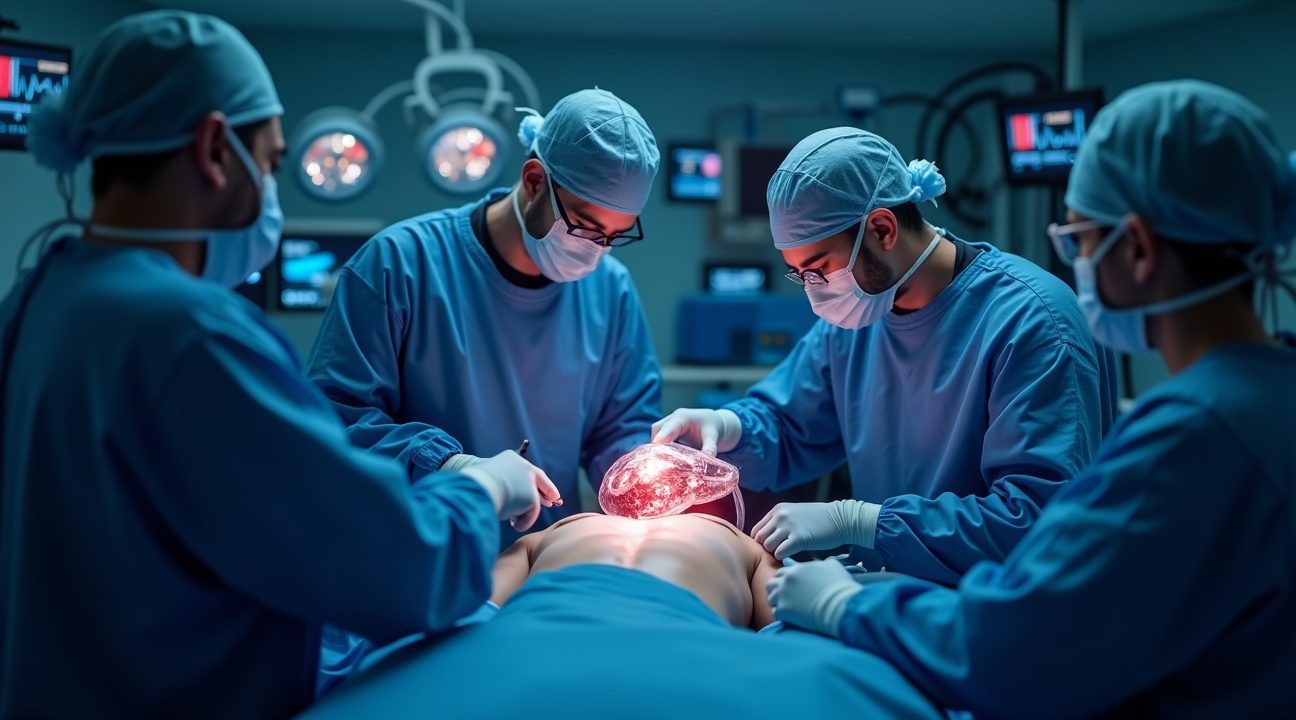
Dramatic Acceleration in Global Implementation
CARMAT’s artificial heart has reached a remarkable milestone that demonstrates its growing acceptance in the medical community. I’ve observed how the company has performed over 100 Aeson implants as of early 2025, with the most recent 50 procedures completed in just over a year. This acceleration represents a dramatic shift from the initial phase, where the first 50 implants required nearly a decade to achieve.
The numbers tell a compelling story about this technological breakthrough. More than 120 patients globally have now received the device, establishing it as the most advanced artificial heart currently available. This achievement stems from over 30 years of dedicated research, reflecting the extensive development process required to create such a sophisticated medical device.
Quarterly Growth Demonstrates Market Confidence
The first quarter of 2025 alone showcased impressive expansion across European markets. I noted that 16 implants were completed across France, Germany, and Italy during this period. These procedures generated 2.4 million euros in sales, representing a 140% increase compared to the same period in the previous year.
Several factors contribute to this accelerated adoption:
- Enhanced surgical training programs have increased the number of qualified medical teams
- Improved patient selection criteria have led to better outcomes and reduced complications
- Streamlined manufacturing processes have increased device availability
- Expanded insurance coverage has made the procedure accessible to more patients
- Positive clinical results have built confidence among cardiologists and cardiac surgeons
This rapid growth pattern suggests that the medical community has gained significant confidence in the technology. The acceleration from a decade-long timeline for the first 50 implants to just over a year for the next 50 indicates that initial concerns about safety and efficacy have been largely addressed. Healthcare providers are now more comfortable recommending the device to suitable candidates.
The geographic expansion across multiple European countries also demonstrates regulatory acceptance and the establishment of proper infrastructure for patient care. This growth trajectory positions CARMAT’s artificial heart as a viable alternative to traditional heart transplants, particularly important given the ongoing shortage of donor organs. The technology’s success mirrors other breakthrough medical devices that have seen similar artificial intelligence paving the way for revolutionary healthcare solutions.
Urgent Funding Crisis Threatens Revolutionary Technology
CARMAT’s groundbreaking artificial heart technology stands at a critical crossroads, facing an immediate financial crisis that could derail years of medical innovation. The French company requires 3.5 million euros by June 2025 to maintain operations, with an additional 35 million euros needed over the following twelve months to sustain research and development efforts.
This funding shortfall threatens to halt production and deployment of a device that could transform countless lives. Without adequate financial support, CARMAT risks losing momentum in bringing this life-saving technology to patients worldwide. The company’s situation highlights broader challenges facing the medical device industry, where revolutionary innovations often struggle to bridge the gap between scientific breakthrough and commercial viability.
Financial Barriers in Healthcare Innovation
The funding crisis reveals systemic issues affecting medical device companies developing cutting-edge technologies. Healthcare innovation requires substantial investment over extended periods, often spanning decades from concept to patient access. Unlike artificial intelligence developments that can scale rapidly with minimal physical infrastructure, medical devices face rigorous regulatory processes and extensive clinical trials.
CARMAT’s artificial heart represents the kind of transformative technology that typically requires multiple funding rounds and sustained investor confidence. The reimbursement landscape adds another layer of complexity, as healthcare systems worldwide grapple with integrating expensive new technologies into existing payment structures. Medical device companies must demonstrate not only clinical efficacy but also economic value to secure widespread adoption.
Several factors contribute to this funding challenge:
- Lengthy regulatory approval processes that delay revenue generation
- High manufacturing costs for complex biomedical devices
- Limited reimbursement pathways for innovative treatments
- Risk-averse investment climate in healthcare technology
- Competition for resources with other medical innovations
The company has launched a donation campaign to support its mission, recognizing that traditional funding sources may not suffice. This approach reflects growing awareness that breakthrough medical technologies sometimes require community support to reach their full potential. Patient advocacy groups and healthcare organizations increasingly recognize their role in supporting innovations that could benefit future patients.
Industry experts point to similar challenges faced by other medical device pioneers. Revolutionary technologies often encounter what economists call the “valley of death” – the gap between research success and commercial sustainability. Flying car technology faces similar hurdles in transitioning from prototype to market reality, though the stakes in healthcare innovation directly impact human lives.
The timing of CARMAT’s funding crisis is particularly concerning given the growing global need for heart replacement options. Donor organ shortages continue to worsen worldwide, making artificial alternatives increasingly critical. Failure to secure necessary funding could set back the field of artificial organ development by years, potentially affecting thousands of patients who might benefit from this technology.
Healthcare systems and regulatory bodies are beginning to recognize the need for new funding models that support breakthrough innovations. Some countries have established fast-track pathways for promising medical devices, while others offer conditional reimbursement programs that provide early access while gathering real-world evidence.
CARMAT’s situation underscores the importance of sustained investment in healthcare innovation. The company’s artificial heart technology represents years of research and development, with potential applications extending far beyond its current indication. Similar to how space exploration initiatives require long-term vision and funding commitment, medical device innovation demands patience and substantial financial resources.
The outcome of CARMAT’s funding efforts will likely influence how other medical device companies approach financing for revolutionary technologies. Success could encourage more innovative funding models, while failure might prompt investors to be even more cautious about supporting high-risk, high-reward medical innovations.
Patient access to this technology ultimately depends on resolving these financial challenges. The artificial heart’s potential to eliminate dependence on donor organs represents a paradigm shift in cardiac care, but only if the company can secure the resources needed to continue its vital work.
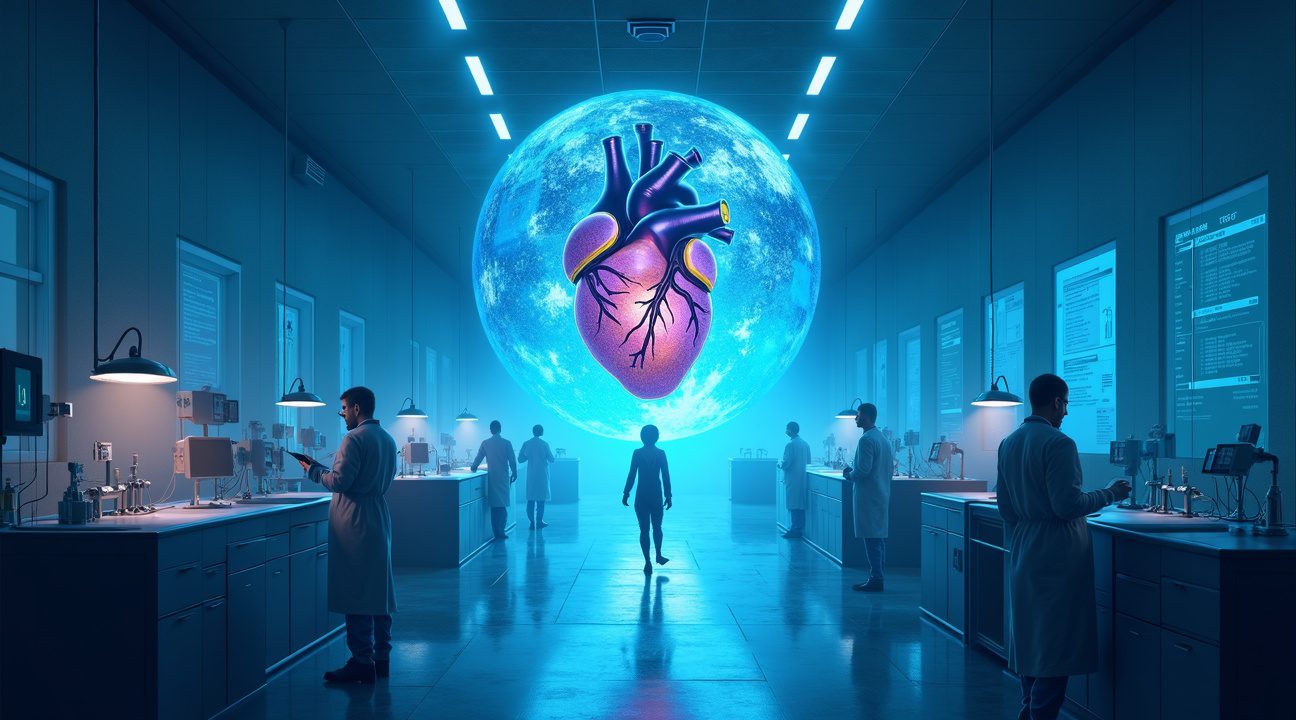
Future Expansion and Enhanced Version Coming Soon
CARMAT’s ambitious roadmap for the Aeson artificial heart extends far beyond its current European deployment. The company is actively pursuing reimbursement within the French health system, with plans to submit their application in early 2026. This strategic move will make the life-saving technology more accessible to patients across France, removing financial barriers that currently limit access to this groundbreaking treatment.
Across the Atlantic, CARMAT is engaging in critical discussions with the US FDA to restart clinical trials on American soil. These conversations represent a significant milestone for bringing the Aeson device to one of the world’s largest medical markets. The company’s previous experience with regulatory processes in Europe positions them well for navigating the FDA’s stringent approval requirements. Success in the US market would dramatically expand the patient population that could benefit from this artificial intelligence powered cardiac solution.
Enhanced Technology on the Horizon
The next generation of Aeson technology promises even greater capabilities. CARMAT anticipates releasing an enhanced version designed specifically for long-term use by late 2025. This improved iteration will address current limitations and expand patient eligibility criteria, potentially helping individuals who don’t qualify for the current model. The enhanced device represents years of continuous research and development, incorporating lessons learned from real-world clinical applications.
Clinical evidence continues to build around Aeson’s effectiveness, with rapid adoption trends indicating strong physician confidence in the technology. Healthcare providers are increasingly viewing the artificial heart as a viable primary treatment option rather than just a temporary bridge solution. This shift in perspective reflects the device’s proven reliability and the growing body of successful patient outcomes.
The enhanced version’s development focuses on durability improvements and expanded compatibility with different patient anatomies. Engineers are refining the device’s biocompatible materials and optimizing its self-regulating mechanisms to ensure consistent performance over extended periods. These advances could revolutionize treatment protocols for advanced heart failure patients worldwide.
CARMAT’s ultimate goal centers on establishing Aeson as the go-to alternative for patients who cannot receive traditional heart transplants or face lengthy waiting periods. The company envisions a future where geographical location, blood type compatibility, or donor availability no longer determine a patient’s survival chances. This vision aligns with broader trends in personalized medicine and advanced technology applications in healthcare.
Market expansion strategies include:
- Partnerships with international medical centers
- Collaboration with regulatory agencies across multiple continents
- Simultaneous launches in several key markets
The company’s manufacturing capabilities are scaling accordingly to meet anticipated demand from diverse healthcare systems.
The transformation of heart failure treatment standards appears imminent as clinical data continues to support Aeson’s efficacy and safety profile. Medical professionals are adapting their treatment algorithms to incorporate artificial heart options earlier in the patient care journey. This paradigm shift could fundamentally change how cardiovascular medicine approaches end-stage heart failure, moving from reactive to proactive treatment strategies.
CARMAT’s timeline reflects careful coordination between technological advancement, regulatory compliance, and market readiness. The company balances innovation speed with safety requirements, ensuring that each enhancement undergoes rigorous testing before reaching patients. This measured approach builds trust with healthcare providers and regulatory bodies while maintaining the highest safety standards.
The artificial heart’s potential impact extends beyond individual patient outcomes to include broader healthcare economics. Reduced dependency on donor organ availability could alleviate pressure on transplant programs and redistribute healthcare resources more efficiently. Countries with limited access to donor hearts could see dramatic improvements in patient survival rates and quality of life outcomes.
As CARMAT progresses through these expansion phases, the Aeson device positions itself to become the definitive solution for patients facing advanced heart failure. The combination of proven technology, enhanced capabilities, and expanded global availability creates an unprecedented opportunity to save lives previously considered beyond medical intervention.
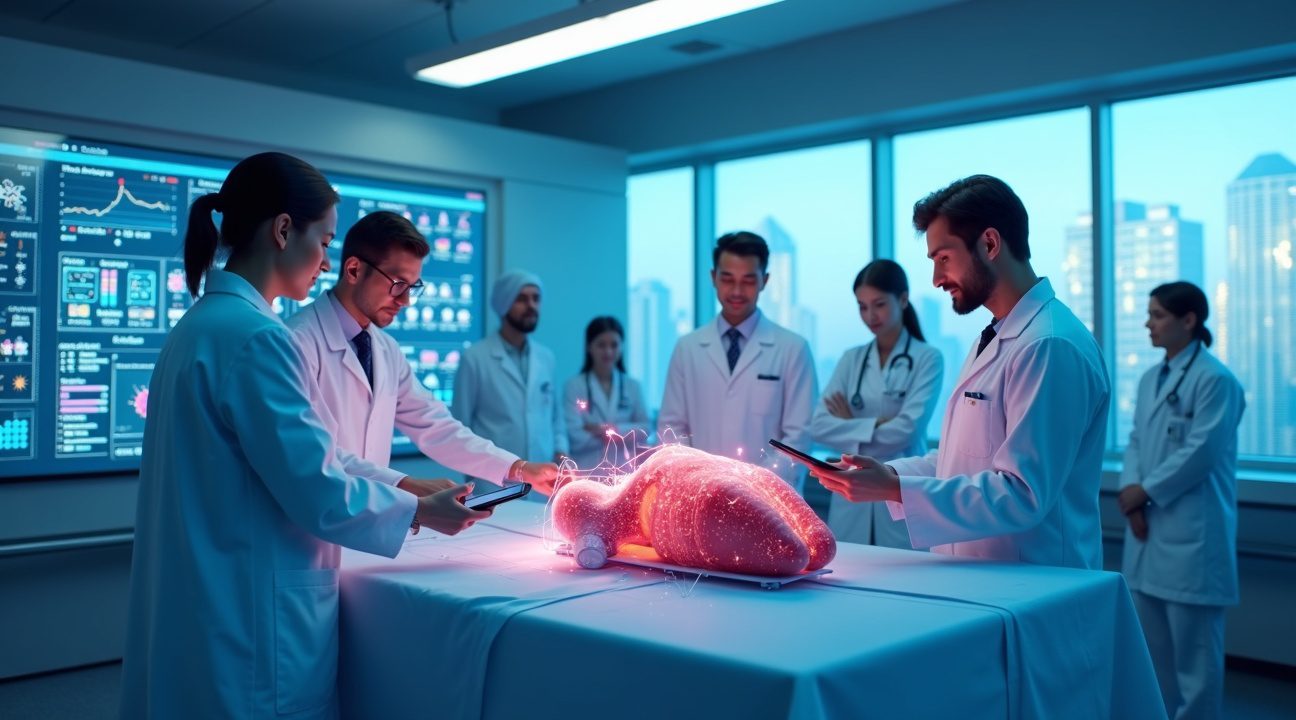
Sources:
Medpath: “CARMAT Reports Strong Q1 2025 Results with 140% Increase in Aeson® Artificial Heart Implants”
CARMAT: “Completes Enrolment in the EFICAS Clinical Study and Receives Approval From French Authorities for 21 Additional Aeson Implants”
PMC: “The Total Artificial Heart: An Existential Transformation Beyond Transplantation”
BusinessWire: “CARMAT Completes Enrolment in the EFICAS Clinical Study and Receives Approval From French Authorities for 21 Additional Aeson Implants While Awaiting Potential Reimbursement of the Device in France”
CARMAT: “Launches a Donation Campaign Open to All to Contribute to its Funding and Continuation of its Activities”
Clinical Trial Vanguard: “Carmat Aeson® Artificial Heart Achieves 100 Implants”
CARMAT corporate website, About section

